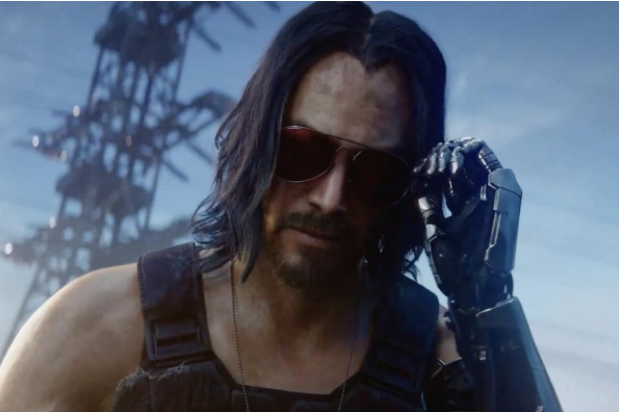Broken, buggy and unfinished. These are not the words anyone wants to hear associated with a new game, let alone something as high profile as “Cyberpunk 2077.” However, no three words can better describe this game, which tries to be a “Grand Theft Auto” style open-world game set in a neon-drenched dystopian future.
The CD Projeckt Red’s (CDPR) bungled development and launch of this game is surprising because the developer was reputed to be one of the best in the business. CDPR had promised that the “Cyberpunk 2077” would be so great that it would surpass their last award-winning title “The Witcher 3: Wild Hunt,” and usher in a glorious new age of open-world games.
The game’s tall ambitions were not just the fantasies of its many over-hyped fans, a torrent of marketing spurred them on. It was hard to avoid the trailers, gameplay footage, concept art and appearances from the well-loved celebrity Keanu Reeves.
All of this material built up the game and continued to make big promises. However, it all proved to be all smoke and mirrors. Behind the scenes, CDPR had constant troubles with the game’s development, which started in 2011.
“Cyberpunk 2077” seemed to channel a doomed Kickstarter, making more and more promises without concern for their feasibility. Like so many other studios, CDPR made the development process worse due to the intense, unhealthy pressure forced on CDPR employees.
The game-breaking bugs, many minor glitches and other features that are lacking or nonexistent in the game are not surprising for these reasons. CDPR bit off more than they could chew, and in the end, they showed more concern about pushing the game to get the most out of last-generation consoles than actually making a good game.
CDPR has shown that it is no different than the other game companies that many people often cast as villains, like Electronic Arts or Bethesda Game Studios. The story of “Cyberpunk 2077” mirrors so many other stories in the gaming industry, but this whole saga has echoes of BioWare’s “Anthem” — another game that had a horrible development process, plagued by mismanagement and practices that hurt its regular employees.
Avid gamers should not lightly take this continued practice of mismanagement, short-sightedness and anti-consumer deception from game studios and developers. These companies burn out their employees but don’t seem to make better games.
Widely celebrated titles like “The Witcher 3: Wild Hunt” or “Red Dead Redemption 2” have had had developments that are less than stellar. However, games like “Anthem” and “Cyberpunk 2077” show that what made those games great wasn’t working their employees to the bone.
Night City of “Cyberpunk 2077” might be beautiful, but it is as hollow as the game itself. It is just another example of a game whose troubled development led to a problematic outcome. The dystopian future imagined in the game is centered around short-sighted and ambitious corporations who care little for people’s lives. CDPR and other game studios should take a look in the mirror.
bmh6dw@mail.umkc.edu








